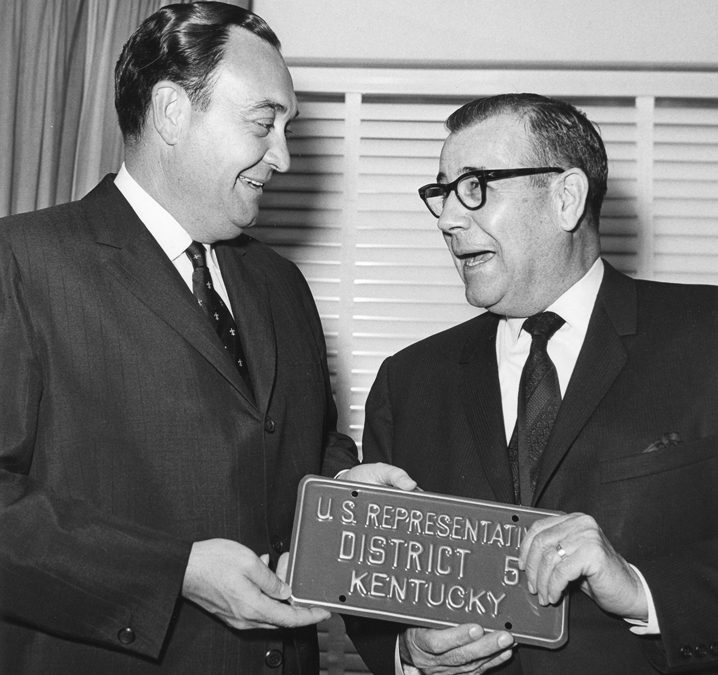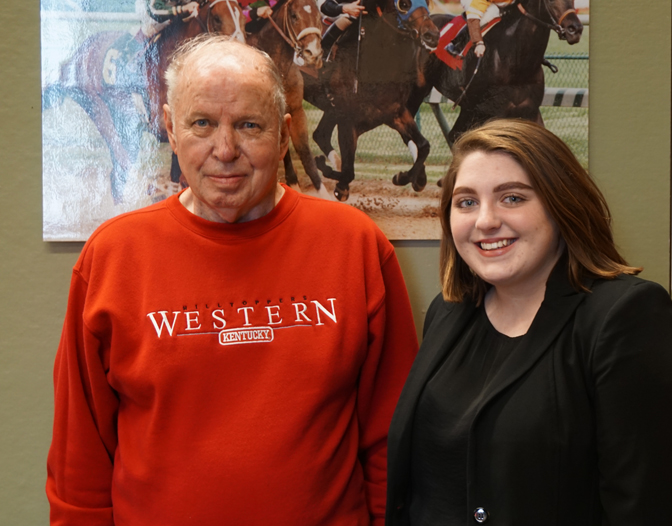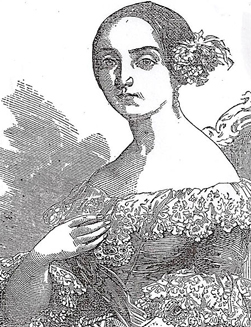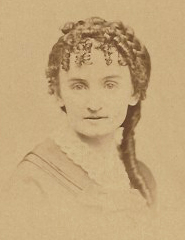The Warren County Fair has always been a great time to gather for fun, competition and education. Despite being in the throes of war in 1918, the Fair Board decided to continue the tradition in the first full week of September that year. To take advantage of the large number of visitors to the fair, the local Red Cross chapter petitioned the Fair Association for permission to serve meals to the crowds. The money raised would benefit the Red Cross’ war efforts, and the ladies were determined to raise $10,000 via this effort. The patriotic rhetoric was thick: “When we stop and think that all the money that is made in this way goes to the aid of wounded boys who are fighting for us, we will not do out bit , but our VERY BEST for them.”
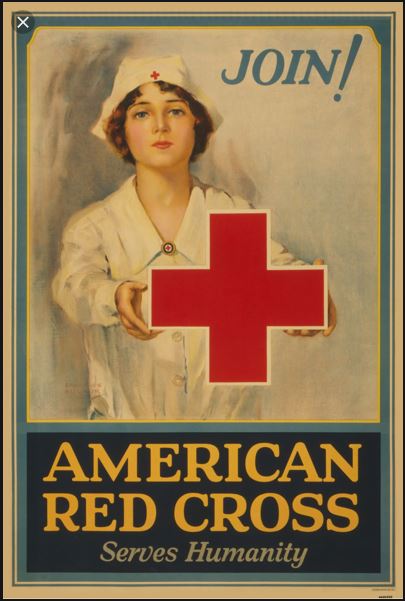
Bettie (Robertson) Hagerman assumed chairmanship of the endeavor. In order to provide the food necessary for the four-day event, Hagerman divided the city proportionately by major streets and appointed a street chairman for each area. Although we don’t have the aggregate figures for each type of food item, we do have several forms filled out by the street chairmen. The image below shows the contributions recorded by street chairman Mrs. B.S. White from Woodford Street: 8 fried chickens, 14 dozen tomatoes, 10.5 dozen eggs, five bowls of salads (tuna fish or pimento and cheese), 2 pounds of ham, $8.20 in cash to buy bread, 5 dozen lemons, 4 pans of potatoes, and 1 pound of sugar. It’s pretty obvious that the canteen was going to serve lemonade as the meal’s beverage.
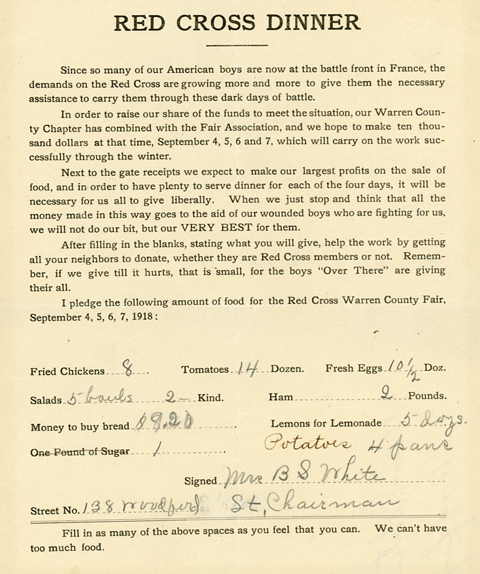
Each of the twenty-five street chairmen was encouraged to get everyone on the street to donate “whether they are Red Cross members or not. Remember, if we give till it hurts, that is small, for the boys “Over There” are giving their all.” We don’t know if the ladies were successful in their effort to raise $10,000, but these preparation documents certainly indicate that they were determined. To see other collections containing information about the Red Cross or World War I search KenCat or TopSCHOLAR.

